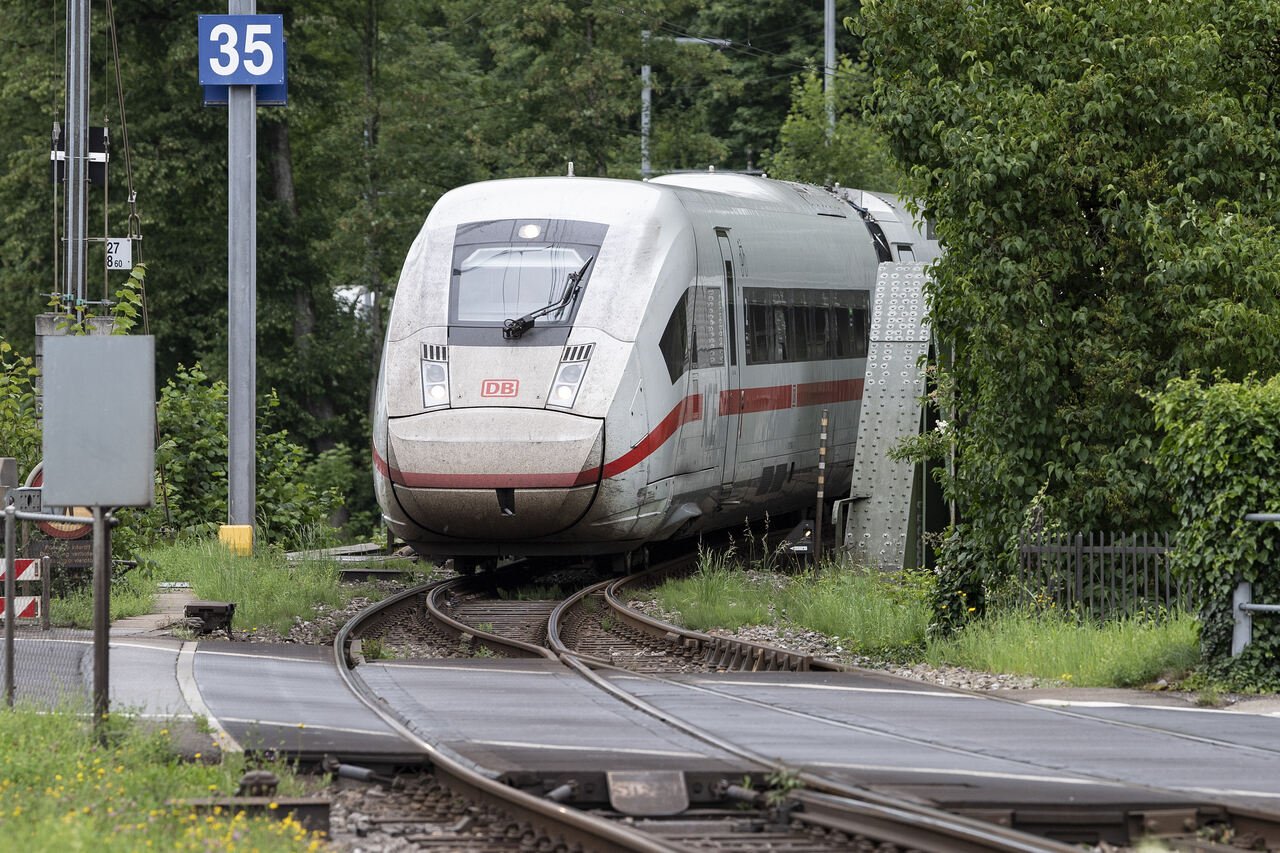How will the 2024 budget affect foreigners in Germany?

Foreigners living in Germany will see some social services increasing in 2024 - but also grapple with budget cuts in core areas of their everyday lives. We lay out what to expect.
Over the summer, Germany approved its much debated budget for 2024, which is to be officially adopted in November.
Some expenditures are increasing, namely those for defence. The German government has already set aside €51.8 billion in military spending for 2024, up from €50 billion this year. This puts it at the NATO-set target of two percent of each member state's GDP.
The Bundesrepublik has for years been criticised that it did not meet this quota, but for the first time is set to - and even exceed it - as it increasingly strives to revamp its flailing Bundeswehr and lend more support to Ukraine.
But to budget for this increase - among others - without going into debt, it’s also cutting certain services which affect foreigners in Germany. Here’s what you need to know.
READ ALSO: German government approves belt tightening budget for 2024
Elterngeld is being halved
Many move to Germany for higher paying jobs which the country offers, particularly in STEM fields. But couples and individuals who have a taxable income of more than €150,000 per year will no longer qualify for Elterngeld (parental allowance) when they go on parental leave.
Previously the benefit was available to couples earning less than €300,000, or €250,000 for single parents. The move is expected to affect around 60,000 families in Germany.
READ ALSO: 'A horrible idea': How cuts to Elterngeld will affect families in Germany
Less funding for trains
For years the German government has vowed to refurbish its rail services, which are notorious for their frequent delays and cancellations. It had even set aside €45 billion for Deutsche Bahn in a far-reaching climate package passed in March. Yet the government has now said it will currently only fund the rail service “as far as financially feasible".
For environmentalists, this was a double whammy as the budget still includes tax breaks for motorists - something which the Green Party has pushed Finance Minister Christian Lindner (FDP) to scratch out.
But train enthusiasts looking to explore Germany and beyond can still look forward to speedy services coming out in the coming months, often in partnership with Austrian and French rail lines. And despite talk of raising the price, the Deutschlandticket is still set to be available for just €49 a month (at least for the moment).

The Inter City Express, ICE 4, of Deutsche Bahn, arrives at Interlaken Ost station in Bern. Photo: picture alliance/dpa/KEYSTONE | Peter Schneider
Reducing funds for digital services
Germany has become woefully well-known for its lack of digital services available, include many which would make the lives of foreigners much easier such as an online Anmeldung or renewing a visa digitally with the immigration offices.
This has steadily been improving, especially since Germany passed an Online Access Act (OZG), to significantly increase such services. But for this year the Interior Ministry has earmarked €3.3 million for the digitalisation of administration and administrative services next year - compared to €377 million this year.
It’s true that many German politicians - including Chancellor Olaf Scholz (SPD) - are pressing for digitalisation in part to persuade more foreigners to come to, and feel comfortable in, Germany. But with the lack of funding, a digital revolution may take a bit longer than hoped.
READ ALSO: Is Germany a failed state for digital public services?
Higher health care contributions
The one billion budget for long-term health insurance (Pflegeversicherung) is being axed, but the gap is being made up for by higher health care contribution rates which were adapted in July of this year. However some people, such as those with children, have seen their contribution rates decrease slightly.
READ ALSO: German health insurance contributions 'to increase in 2024'
More social benefits
The budget may seem to spell doom and gloom for many, but it’s also giving some social services a major boost. Germany’s new unemployment benefit, Bürgergeld, will go up by €23.8 billion in 2023 to €24.3 billion next year.
An additional €127 billion is being allocated to pension insurance (Rentenversicherung), which Germany sees as sorely needed as its population ages and the cost of living - with an inflation rate that sits over six percent - rises.
Foreigners who are accessing some social benefits or their pension could benefit from these changes.
Comments
See Also
Over the summer, Germany approved its much debated budget for 2024, which is to be officially adopted in November.
Some expenditures are increasing, namely those for defence. The German government has already set aside €51.8 billion in military spending for 2024, up from €50 billion this year. This puts it at the NATO-set target of two percent of each member state's GDP.
The Bundesrepublik has for years been criticised that it did not meet this quota, but for the first time is set to - and even exceed it - as it increasingly strives to revamp its flailing Bundeswehr and lend more support to Ukraine.
But to budget for this increase - among others - without going into debt, it’s also cutting certain services which affect foreigners in Germany. Here’s what you need to know.
READ ALSO: German government approves belt tightening budget for 2024
Elterngeld is being halved
Many move to Germany for higher paying jobs which the country offers, particularly in STEM fields. But couples and individuals who have a taxable income of more than €150,000 per year will no longer qualify for Elterngeld (parental allowance) when they go on parental leave.
Previously the benefit was available to couples earning less than €300,000, or €250,000 for single parents. The move is expected to affect around 60,000 families in Germany.
READ ALSO: 'A horrible idea': How cuts to Elterngeld will affect families in Germany
Less funding for trains
For years the German government has vowed to refurbish its rail services, which are notorious for their frequent delays and cancellations. It had even set aside €45 billion for Deutsche Bahn in a far-reaching climate package passed in March. Yet the government has now said it will currently only fund the rail service “as far as financially feasible".
For environmentalists, this was a double whammy as the budget still includes tax breaks for motorists - something which the Green Party has pushed Finance Minister Christian Lindner (FDP) to scratch out.
But train enthusiasts looking to explore Germany and beyond can still look forward to speedy services coming out in the coming months, often in partnership with Austrian and French rail lines. And despite talk of raising the price, the Deutschlandticket is still set to be available for just €49 a month (at least for the moment).

Reducing funds for digital services
Germany has become woefully well-known for its lack of digital services available, include many which would make the lives of foreigners much easier such as an online Anmeldung or renewing a visa digitally with the immigration offices.
This has steadily been improving, especially since Germany passed an Online Access Act (OZG), to significantly increase such services. But for this year the Interior Ministry has earmarked €3.3 million for the digitalisation of administration and administrative services next year - compared to €377 million this year.
It’s true that many German politicians - including Chancellor Olaf Scholz (SPD) - are pressing for digitalisation in part to persuade more foreigners to come to, and feel comfortable in, Germany. But with the lack of funding, a digital revolution may take a bit longer than hoped.
READ ALSO: Is Germany a failed state for digital public services?
Higher health care contributions
The one billion budget for long-term health insurance (Pflegeversicherung) is being axed, but the gap is being made up for by higher health care contribution rates which were adapted in July of this year. However some people, such as those with children, have seen their contribution rates decrease slightly.
READ ALSO: German health insurance contributions 'to increase in 2024'
More social benefits
The budget may seem to spell doom and gloom for many, but it’s also giving some social services a major boost. Germany’s new unemployment benefit, Bürgergeld, will go up by €23.8 billion in 2023 to €24.3 billion next year.
An additional €127 billion is being allocated to pension insurance (Rentenversicherung), which Germany sees as sorely needed as its population ages and the cost of living - with an inflation rate that sits over six percent - rises.
Foreigners who are accessing some social benefits or their pension could benefit from these changes.
Join the conversation in our comments section below. Share your own views and experience and if you have a question or suggestion for our journalists then email us at [email protected].
Please keep comments civil, constructive and on topic – and make sure to read our terms of use before getting involved.
Please log in here to leave a comment.